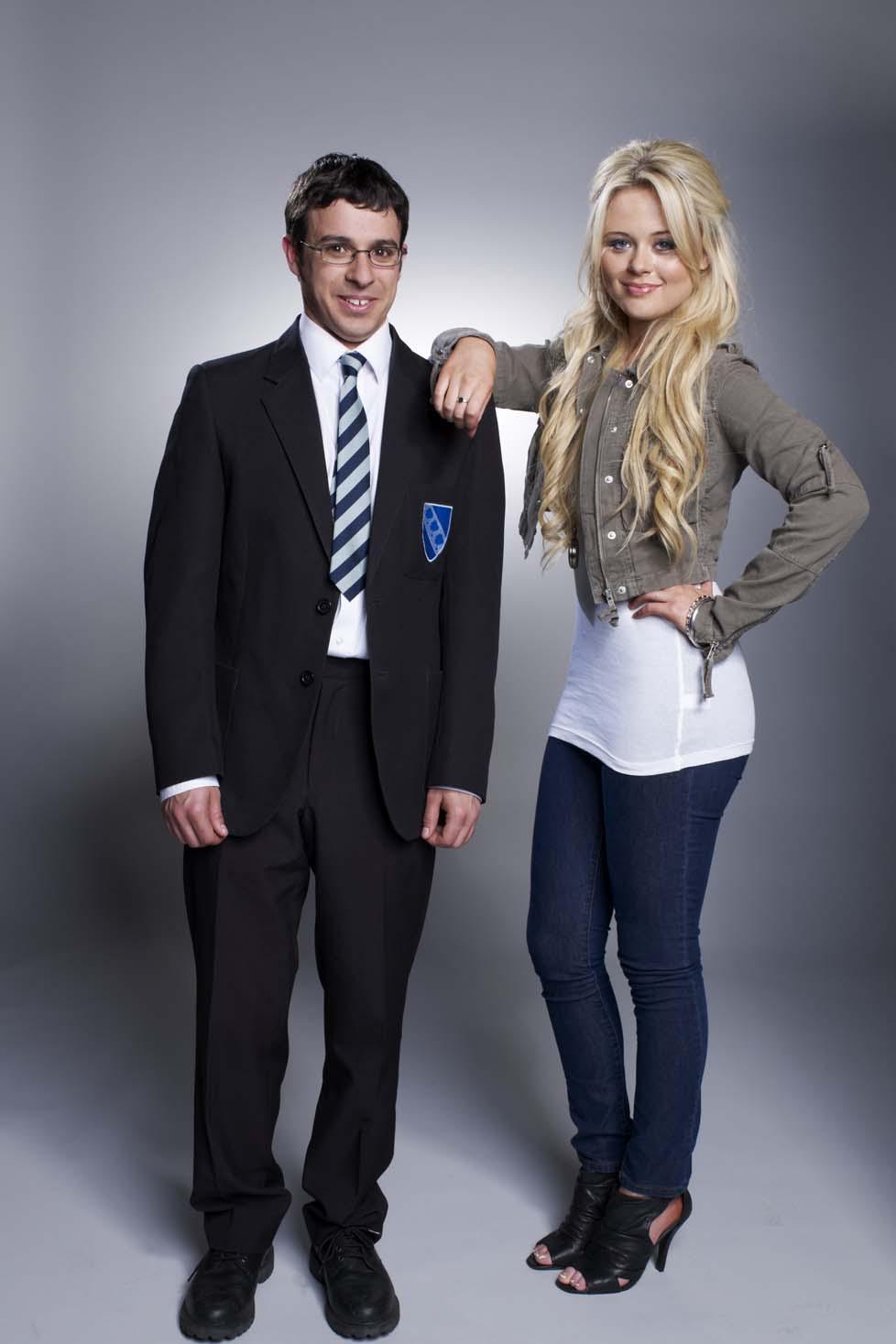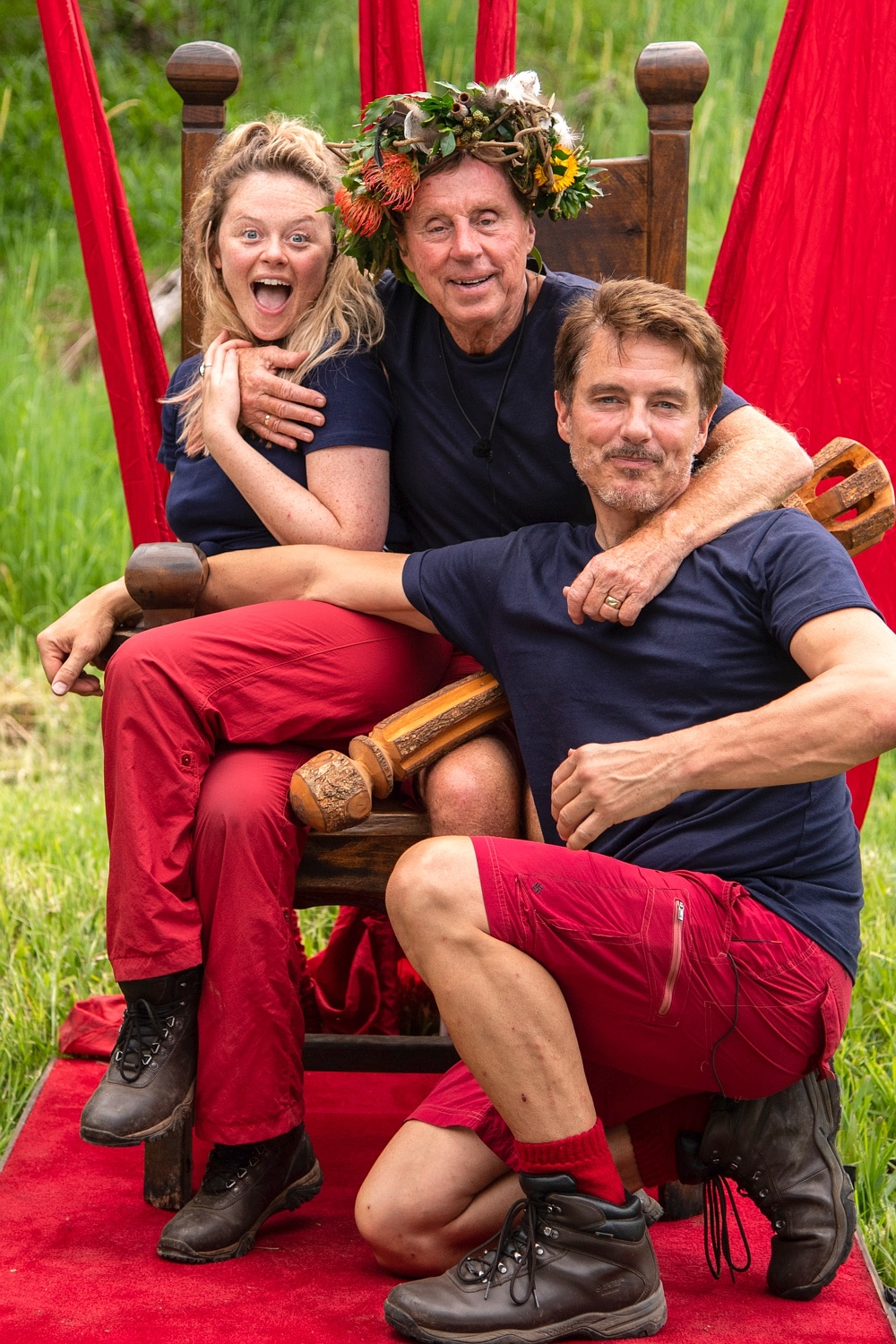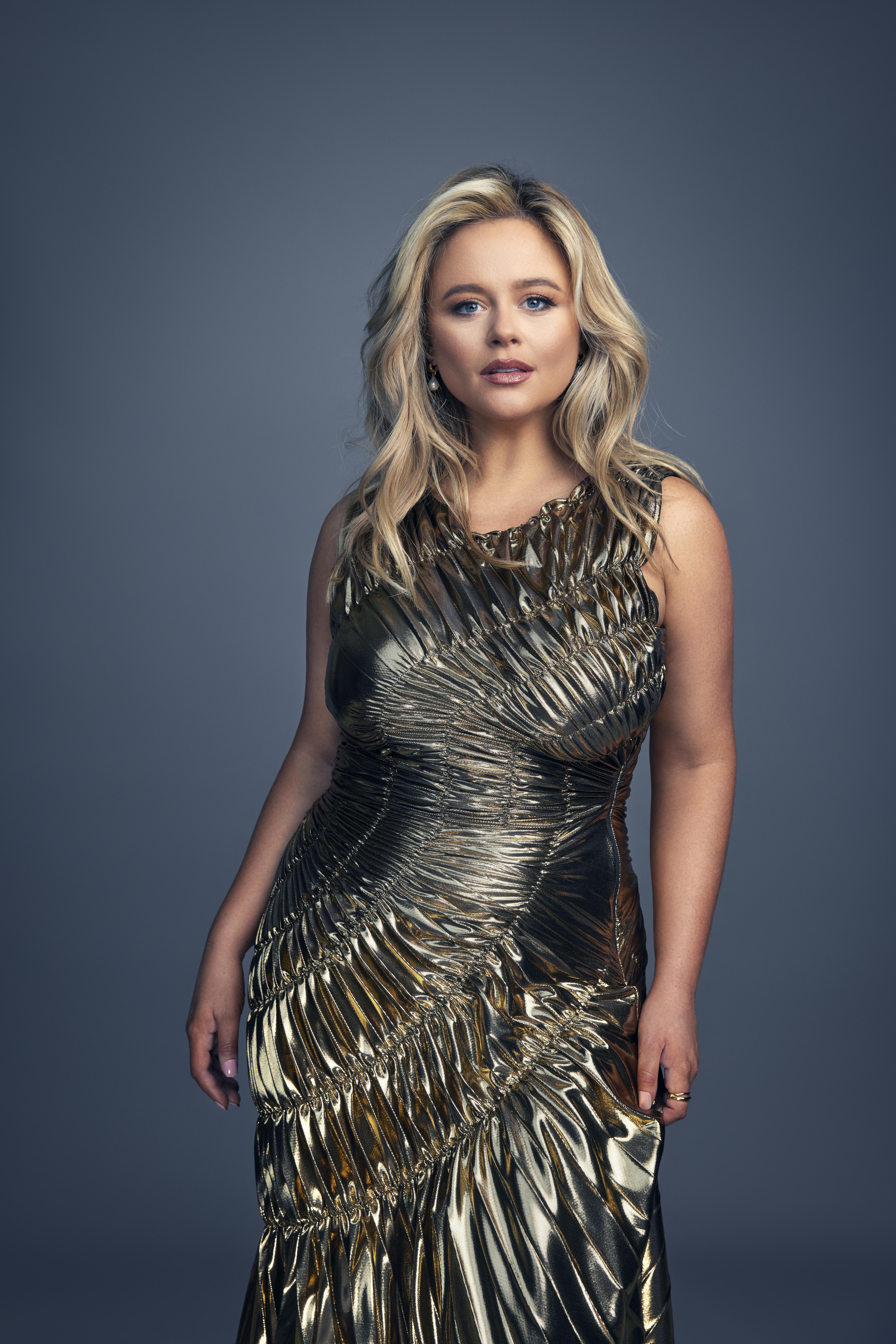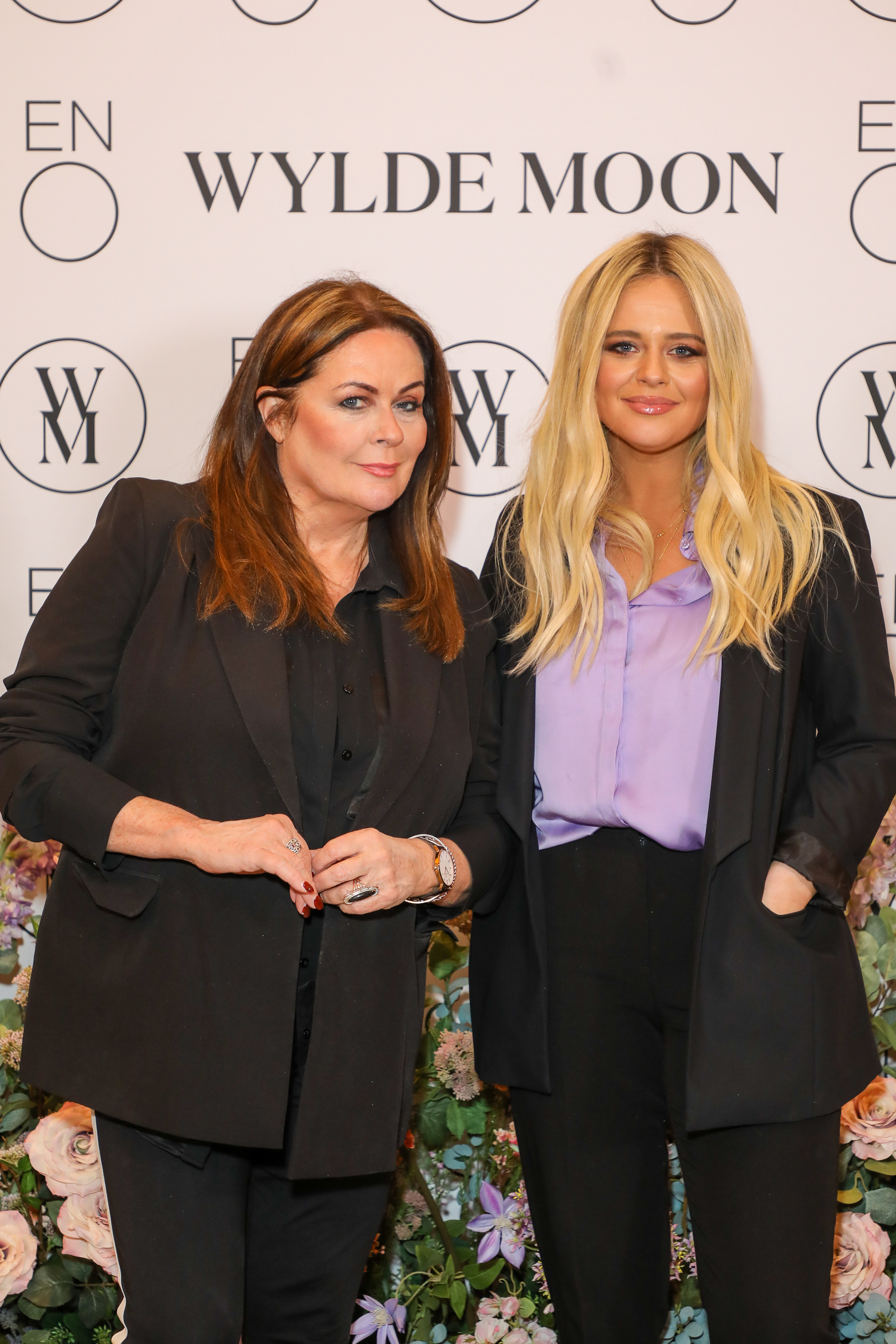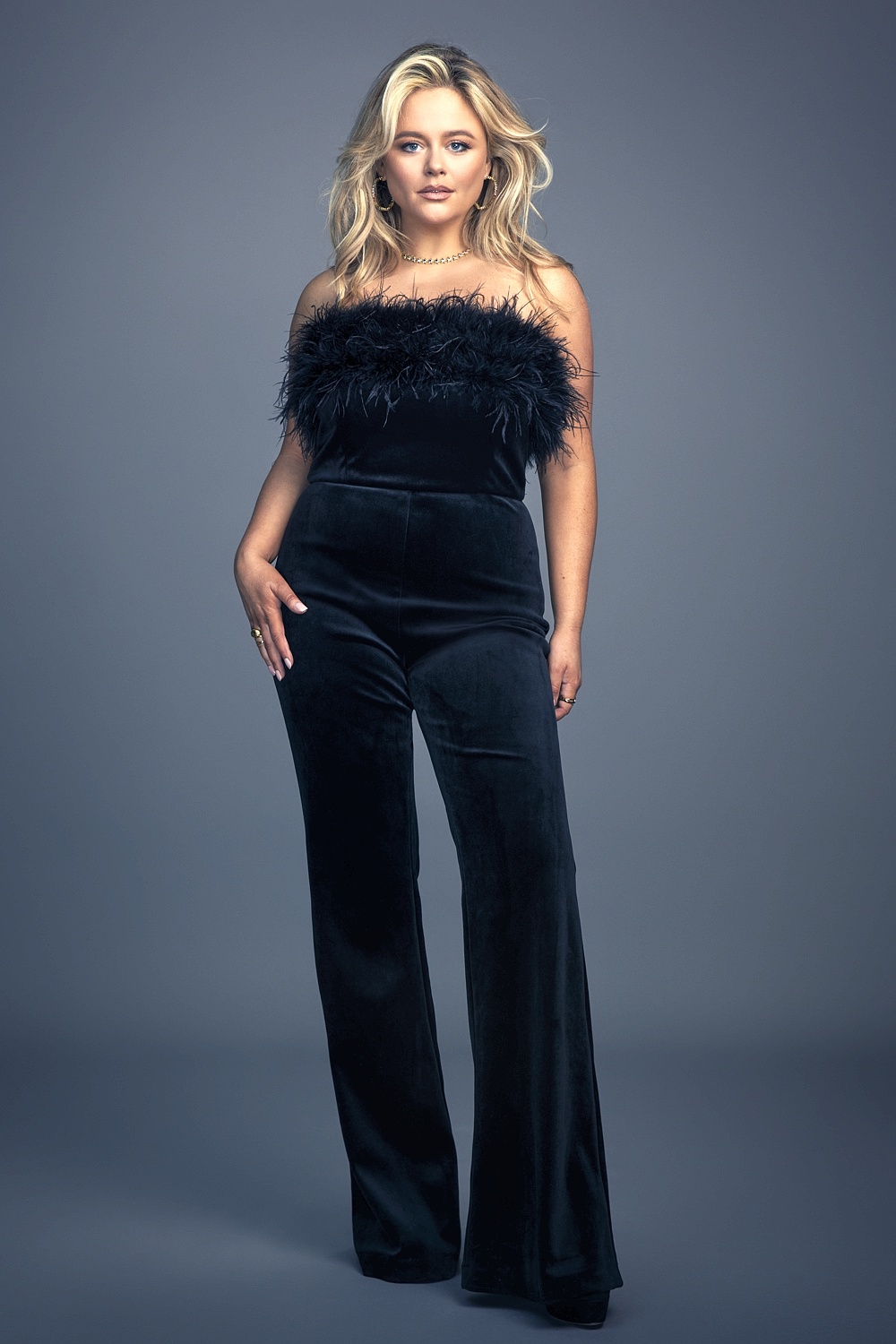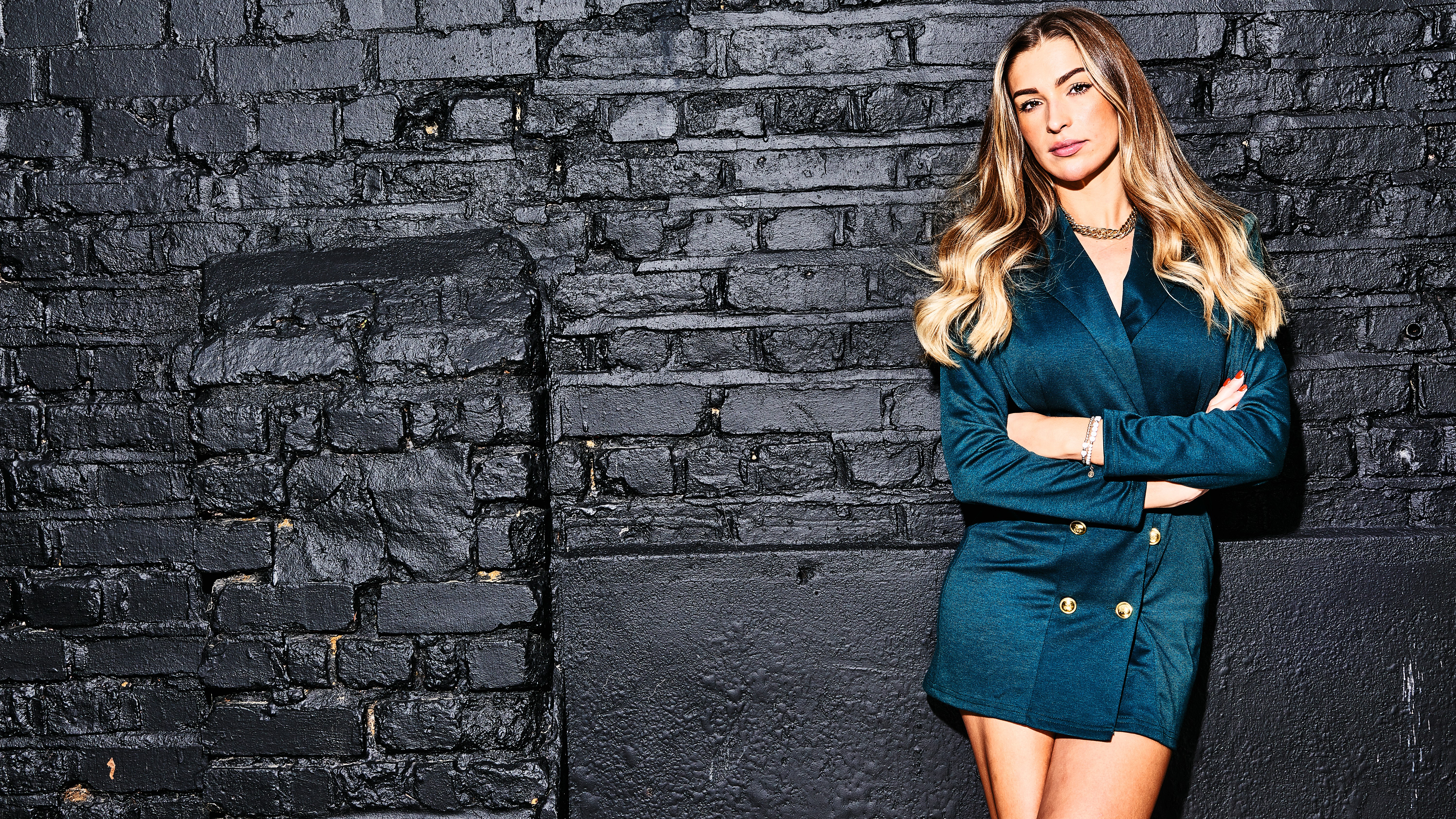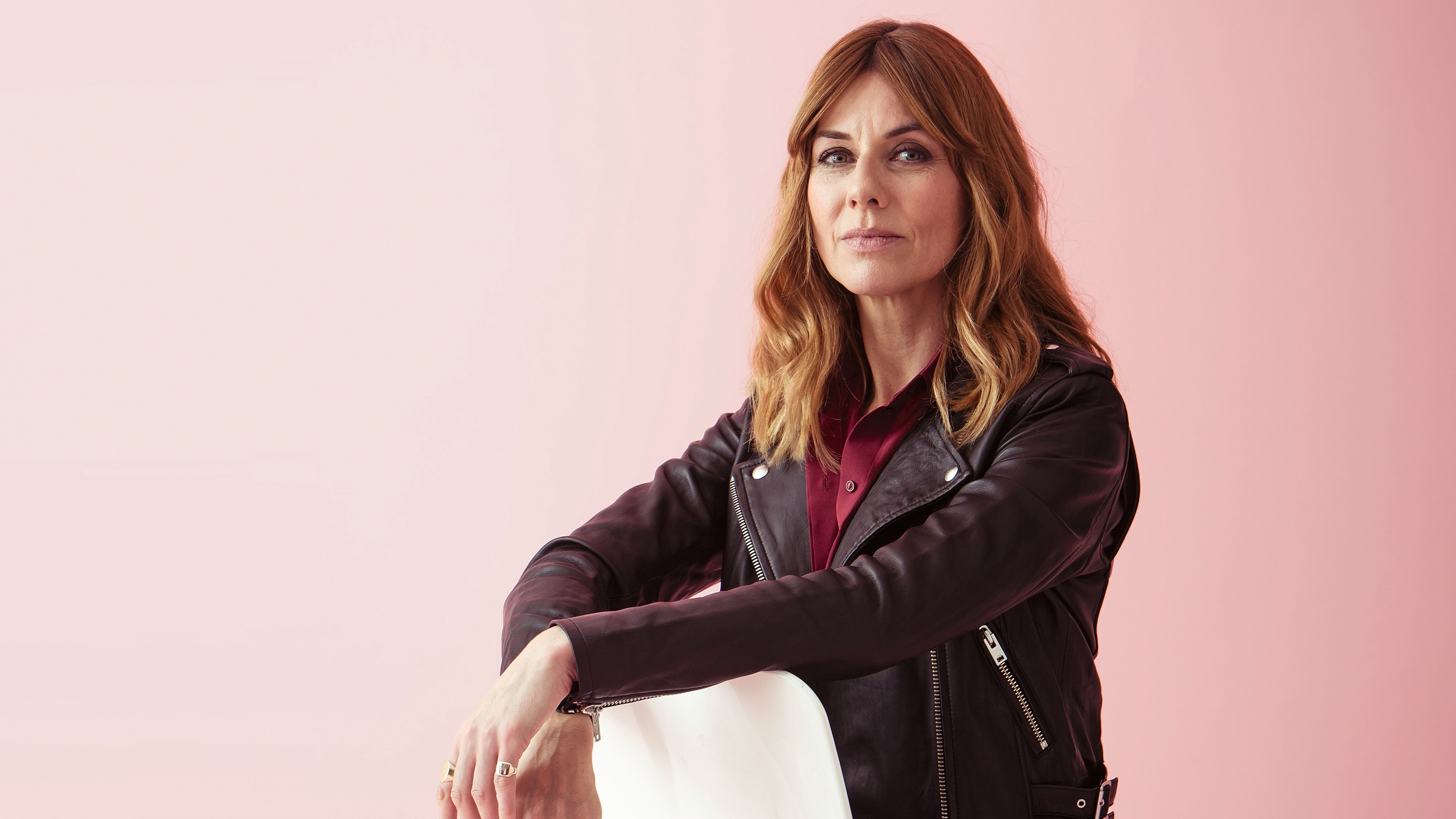Every morning, Emily Atack is confronted with a barrage of penises she doesn’t want to look at and never asked to see. Via her Instagram and Twitter feeds, scores of men send daily images of their genitals — so-called dick pics — along with graphic, often violent descriptions of what they’d like to do to her. Some are almost comical — one man habitually sends shots of himself performing naked handstands, genitalia swinging — while others are straight-up intimidating. One man, she says, “has found a way to post videos on my Twitter feed of him masturbating”. Some border on the obsessional; one regular messenger has even given himself the online moniker “Emily Atack Makes Daddy Dirty”.
More sinister are the frequent threats of rape and murder. One man “openly on Twitter — not even in my DMs [direct messages] — said he was going to cut me open, drink my blood, then rape me and chop my body up”.
Atack is 33, single and lives alone in London. “They will say, ‘I know where you live.’ When I’m in bed at night and hear any sound, I’m terrified,” she says. “I feel physically under threat. People say, ‘Just block and delete.’ OK, but they could turn up at my door.”
Besides, social media — where she has 1.8 million followers on Instagram and nearly 400,000 on Twitter — is a crucial platform for her. “It’s a very real part of my job.” The actress and comedian, who played Charlotte in the cult series The Inbetweeners and was runner-up in the 2018 edition of I’m A Celebrity… Get Me Out of Here!, now has her own ITV2 programme, The Emily Atack Show, mixing sketches with material from her live stand-up comedy shows. Being told to relinquish social media — where she connects with fans and showcases her work — to avoid harassment “is like being told you can’t walk home at night”, she says.
Until recently, Atack didn’t talk about it. Not to her friends, and certainly not to her family. “I showed them the odd message. But we’ve normalised the issue so much that it’s not met with any sympathy, any kind of, ‘Would you like to talk about that?’ ” Anyway, she says, “I laughed it off too. It was easier to go, ‘Oh my God, look at what this guy’s just sent me — arhhh,’ and we’d all scream about it in the pub.”
Advertisement
But then came the pandemic lockdown and a surge in the volume of explicit and extreme messaging flooding her DMs. “It made me feel ten times more isolated, vulnerable and alone. Because all of a sudden I was looking around me, thinking, ‘I’ve got no one to protect me here. I’ve got no one to laugh about it with, even.’ I got really down about it.”
The onslaught, she says, made her feel “lonely, disgusting, embarrassed, ashamed, violated. It feels like sexual assault — and I have been sexually assaulted, so I know what that feels like. I feel like I’m being sexually assaulted hundreds of times a day.”
But, she continues, “There were so many other things going on. People were dying. People were in care homes having to wave at loved ones through windows. I didn’t feel I could come out and say, ‘Can you stop sending me pictures of your dick?’ So I bottled it up.”
● Emily Atack: ‘They put their daughters to bed, then go online and send me rape threats’
The campaign group End Violence Against Women reports that one in five women has experienced online harassment and abuse, while a June 2022 report by the Victims’ Commissioner reported that one in four women has experienced cyberflashing — being sent sexual images, aka dick pics, without consent.
Advertisement
Ask your girlfriend. Ask your sister. Ask — horrifyingly — your teenage daughter. Research by Professor Jessica Ringrose from University College London found that 76 per cent of girls aged 12-18 had been sent unsolicited nude images of boys or men. (And that study was carried out in 2020, before the pandemic intensified online harassment many times over.)
Ask a woman in her teens or twenties or thirties if a man has slid into her DMs and asked her to send him videos. Ask if she’s ever had an image sent to her phone via AirDrop by a stranger sitting nearby on the bus. Ask if she’s ever got chatting to a guy on a dating app, given him her number and suddenly been deluged with pictures of his penis — without even having gone on a date. The answer will almost certainly be yes.
If you’re over 40, however, you might well be blithely unaware of the extent of the issue. Less because, as members of my fortysomething book club commented the other night when I did a straw poll on the subject, “Nobody wants to AirDrop their dick to a middle-aged woman,” and more, I believe, because our demographic — too old to be digital natives, or even confidently to know how to turn on their AirDrop facility — simply spends far less of their life online. Those female friends over 40 with prominent public and social media profiles — and who are therefore more digitally accessible — are, in fact, bombarded with images and abuse.
Even armed with evidence of how widespread the problem is, Atack admits she was still plagued by feelings of shame and self-blame. “Is it because I posed in a bikini? Is it because I get my cleavage out on Instagram and talk about my sex life on stage? Am I part of the problem?”
This is the starting point for Atack’s upcoming BBC documentary, Emily Atack: Asking for It?, an impressively honest and personal exploration of the harassment and abuse she is subjected to, how it has affected her — and other women who experience similar — and an attempt to understand what motivates the men behind it.
Advertisement
Today, sitting across a table from me, sipping coffee and cradling her teacup cavalier spaniel, Penny, in her lap, she admits to nervousness about how it will be received. Will the public understand the complicated conundrum she is attempting to unpick? Will they grasp the internalised misogyny that makes victims blame themselves?
“I think I will always slightly feel like it’s my fault,” admits Atack. “Always. I’m working on it as hard as I can. But when something is ingrained in you from such a young age, it’s hard to unravel all that.”
Even members of her own family, Atack says, “will still sometimes say, ‘Yeah, but you put all your bikini pictures on Instagram.’ It’s how we’re programmed.”
As part of the documentary, Atack spoke to Jamie Klingler, who co-founded Reclaim These Streets after the murder of Sarah Everard and who regularly receives hundreds of rape and death threats, as well as graphic sexual images. (The irony of speaking out about violence against women resulting in Klingler, a woman, being threatened with violence, is not lost on Atack.) Klingler, a smartly and sensibly attired activist, does not (at least according to her Instagram) appear to have posted any bikini shots or posed provocatively for lads’ mags. And yet she is subjected to the same foul abuse. Surely that helped Atack see that none of this is her fault?
“It made me understand that it’s not about bikini photos,” she nods. “It’s about power. About silencing us. They are trying to silence us with their dicks. It’s about power and control. It’s men wanting to silence a powerful, outspoken woman who is, in their head, trying to spoil their fun and kill the party for them.”
Advertisement
While much of the messaging, not to mention the images, may be graphically sexual in nature, Atack has come to understand that this is not about sex at all.
“It is not about them liking us. It’s actually about them hating women. And them being frustrated and angry and projecting their frustrations onto us.”
But this, she says, is another proposition she has to help others grasp. “Lots of people say to me, ‘Oh, so you’re complaining that everyone fancies you?’ No, it’s the opposite. If I felt like everyone fancied me, I’d feel confident and great. But it’s nothing to do with that. If you like somebody and you fancy them, you want to make them feel good. They’re trying to make me feel as small and as insignificant as possible.”
On the day Atack and I meet, the “king of toxic masculinity”, Andrew Tate, loses an appeal against his detention in Romania, following his arrest in late December on suspicion of human trafficking, rape and forming an organised crime group to exploit women. The millionaire and self-proclaimed misogynist remains in custody.
Meanwhile, a burgeoning band of would-be Tates are flooding social media and recruiting ever more men to dance to their toxic tune. Earlier this month it was revealed that TikTok and YouTube are awash with supposed self-help gurus — boasting tens of millions of views each — inspired by Tate, targeting young men who struggle to connect with women. For as little as £7 (and as much as £400) they promise to “coach” men by teaching them how to make women “compliant”.
Advertisement
Jess Phillips can speak from experience on the subject. On one particular night in 2018, the Labour MP for Birmingham Yardley received more than 600 rape threats. In one night. “It just feels overwhelming,” she says. “To have all these people messaging me about the ways they would or wouldn’t rape me, and just to have to always take it — it’s tiring.”
While such harassment is enabled by the internet and social media — abusers can now gain direct access to women in ways they never could before (as some men tell Atack in her documentary, “Why do men do it? Because we can”) — social media did not create the problem. “The Andrew Tates, this new breed of online misogynists, what they have is a platform bigger than anyone’s ever had before,” says Phillips. “But what they certainly didn’t do is invent misogyny.”
The current groundswell, however — from Tate and his also-rans to incels (an online subculture of the involuntarily celibate) — is, Phillips firmly believes, a backlash.
“Whenever there’s any step forward [for women], there’s always a backlash,” she says. (Susan Faludi’s seminal 1991 book on the subject, Backlash, was inspired by a 1986 Newsweek story reporting — incorrectly — the bleak marital prospects for single, educated career women, and by other media myths in the Eighties claiming, among other things, increased infertility and mental illness among professional and career women.)
“And this is a direct backlash to the whole #MeToo movement,” says Phillips. “To women saying, ‘We’re not going to tolerate this any more.’ To women working together and using their voices.
“All violence against women and girls is about control — the desire to control somebody else’s emotions, someone else’s space — and it ramps up at the point where there is a loss of control,” she continues. “A woman is much more likely to be murdered by her husband or partner when she finally leaves, and that’s because of a complete loss of control. So it’s not a surprise to me how aggressive and graphic the manifestation of all this has become — it’s because of a seething loss of control.”
If discussing dick pics in the same breath as murder seems a little heavy-handed, it’s not. The connection between cyberflashing and other online harassment and rape, murder and other serious acts of violence is now, finally, widely recognised.
“It doesn’t start with murder,” says the Labour MP Stella Creasy. Wayne Couzens was reported for indecent exposure six years before he killed Sarah Everard, but no action was taken. He was reported again three days before the murder. “You don’t go straight from 0-60mph,” says Creasy. “Couzens was escalating in his behaviour, and we don’t intervene early enough.”
Atack agrees. “Catcalling might not seem that bad. It might seem like a very minor problem. But you’re doing something without that person’s consent and leaving them with that same insecure, uncomfortable feeling.” She believes catcalling should be made illegal. “We have to start somewhere, to get to the root of how this behaviour turns into something truly awful. It’s cracking down on what are seen as minor, normalised behaviours like catcalling, flashing and cyberflashing that get put to the bottom of the pile.”
Creasy has been campaigning for seven years to have misogyny categorised as a hate crime. “What happens in parliament is that we pick off individual issues, like upskirting, street harassment. But it’s about the source, it’s about where all this is coming from — and we know it doesn’t come from nowhere. You’ve read something online, you’ve seen a YouTube video, and you can now email me, you can tweet Emily Atack, you can get into our Instagram.”
Earlier this month, the much criticised Online Safety Bill passed through the Commons, finally making cyberflashing — sending unsolicited dick pics — a criminal offence, and forcing tech companies, including social media platforms, to protect users from harmful content or face jail.
“The Online Safety Bill will do nothing,” says Jess Phillips. “At the moment, it’s got no teeth, and women aren’t even one of the primary targets.” The focus of the bill is on protecting children and young adults.
Tech companies do need to be held far more accountable though, she says. “Every pound that one of these vile, misogynistic people makes grooming others, every pound that is made for any of these companies is a pound they should feel deep shame about.
“Social media is fundamentally based on libertarian male values,” she says, “so it’s very hard for them to move away from that.”
Atack grew up in a village in Bedfordshire, the eldest of three in a creatively charged home. Her actress mother, Kate Robbins, voiced some of the Spitting Image puppets (when the children were naughty, they would be threatened with being put in the spare room with the Ian Paisley puppet), while her father, Keith Atack, was a musician with the band Child. “It was a house full of singing and performing and f***ing madness,” grins Atack. “We were the kids that always missed the bus in the morning. There were times I used to look around my friends’ tidier kitchens and go, ‘I could do with a bit more order in my life, I think.’ But they didn’t have as much fun as we did.”
The fun also included Sunday lunches at Paul and Linda McCartney’s farm — Atack’s grandmother is McCartney’s cousin, and the families are close. “Stella lends me dresses.”
In her youth, she was unaware of the milieu she was mixing in, until, “We went round there one day and we’d just missed Michael Jackson by about five minutes, and I was fuming: ‘Mum, why didn’t we get here earlier?’ She went, ‘Well, your uncle is a Beatle. Is that not good enough?’ ”
School was less fun. “I was bullied by a group of older girls throughout my years at upper school. I looked very different to everyone else — I was tall, blonde, boobs. I was confident. But then slowly that confidence just got absolutely obliterated.
“I found an outlet with boys and men that I couldn’t find with girls,” she says. “And so I gravitated towards them. I was sexually active from a very young age, and I sort of found that that gave me a bit of a power. I mean, it wasn’t a power — it was quite the opposite, really. I knew that I was far too young to be doing all these things, but it was my only sense of feeling validated. And it was the only way I could navigate school.”
She’d been aware of the unwanted sexual attention she attracted from around the age of ten. “In shops with my mum or on holiday with my family, I had flashers, people pushing me into a corner in clothes shops and masturbating.” And the horrified reaction from her well-meaning parents — her mother wiping off the little lick of make-up she’d experimented with after a man had touched her, saying, “Don’t tell your father” — has bedded in. “I immediately felt like it was something I’d done wrong. And I had privileges taken from me to stop this unwanted attention. It was, ‘Right, you’re not allowed to wear make-up. You’re not going out like that. You can’t wear those clothes.’
“Things were happening that my parents were desperately concerned about and they were trying to change. And the only way they felt that they could change it was by changing me,” she says. “And I get it. But now I’m in my thirties, I’m still doing that. I’m now trying to unravel that and realise that actually that shouldn’t be the case. But it’s so hard to unwire all of that in my brain.”
The toughest part of making the documentary was, she says, talking to her parents about the harassment and abuse she’s faced, both as a younger girl and now. “We’re so close, but there are certain things that we’ve always struggled to talk about,” she says. “Because they blame themselves. This is the awful thing about this kind of abuse: everyone blames themselves, other than the perpetrator. The perpetrator gets off scot-free.”
Before making the documentary, Atack’s focus had been on changing the law. She’d met MPs in parliament to discuss criminalising cyberflashing.
“I was feeling positive afterwards and thought it was going to get somewhere,” she says. “But Covid meant that it was pushed to the bottom of the pile.”
Now, she’s less convinced that legislation is the answer anyway. “People still rob banks; people rape; people kill people. People break the law all the time. So it’s not just about the law; it’s about changing perceptions. It’s about getting to the bottom of why men behave like this in the first place. And preventing that behaviour early on, to stop it becoming something more sinister, which then does turn into a law-breaking situation.”
Phillips agrees. “There’s a place for education in this. There’s a place for [changing] culture. There’s a place for men challenging other men’s attitudes.”
She is hopeful, certainly, about young men and their mindsets. “I have two teenage sons, so I’m exposed to a lot of teenage boys and I’m not worried about their attitudes towards women. I don’t think Andrew Tate wins. My sons both think he’s a twat.”
Atack is also eager to make clear that her mission “isn’t about excluding men from the conversation and calling them all predators. I think a lot of the frustration from men comes from the fact that we end up calling them all monsters, and accusing them all of being the same way, and that’s not what this is.
“Men, we need you more than ever right now,” she says. “To have this conversation and to move forward together.”
Emily Atack: Asking for It? will air on BBC2 and iPlayer on Tuesday, January 31, at 9pm
Shoot credits
Styling Hannah Skelley. Hair Tracey Jones using Simply Hair, GHD and Crystal Earth. Make-up Lydia Barnes using Charlotte Tilbury. Emily Atack wears, opening images, dress, georgiahardinge.co.uk, earrings and stacking rings, monicavinader.com, chunky ring, missoma.comhttps://www.missoma.com/ ; final image, jumpsuit, nadinemerabi.com, earrings and necklace, celestestarre.com, stacking rings, monicavinader.com, chunky ring, missoma.com, shoes, aquazzura.com


